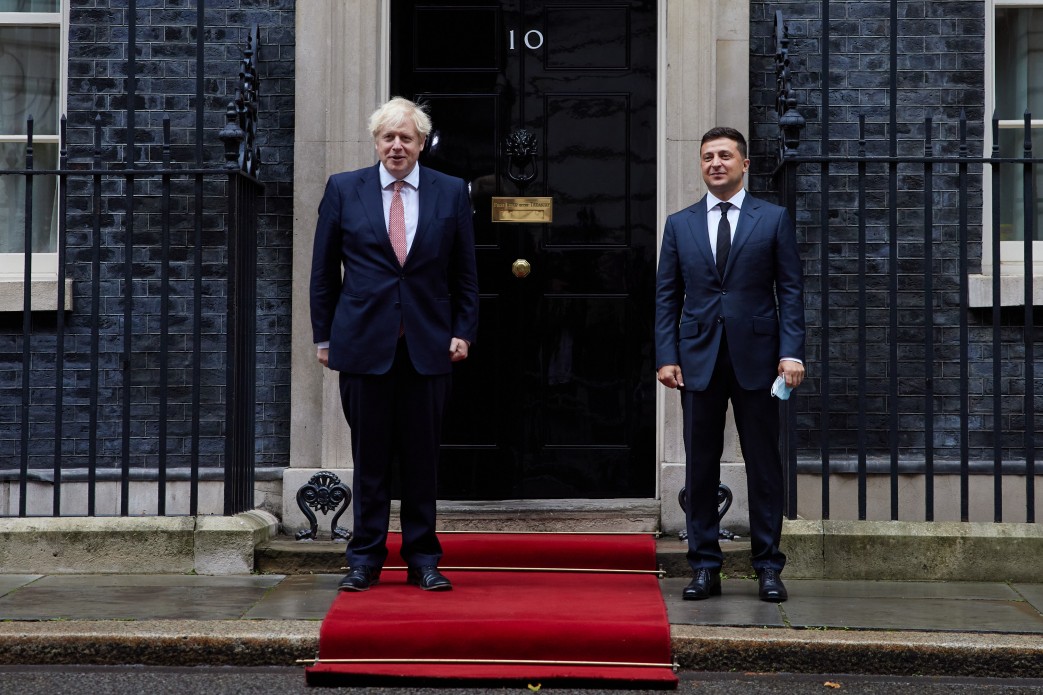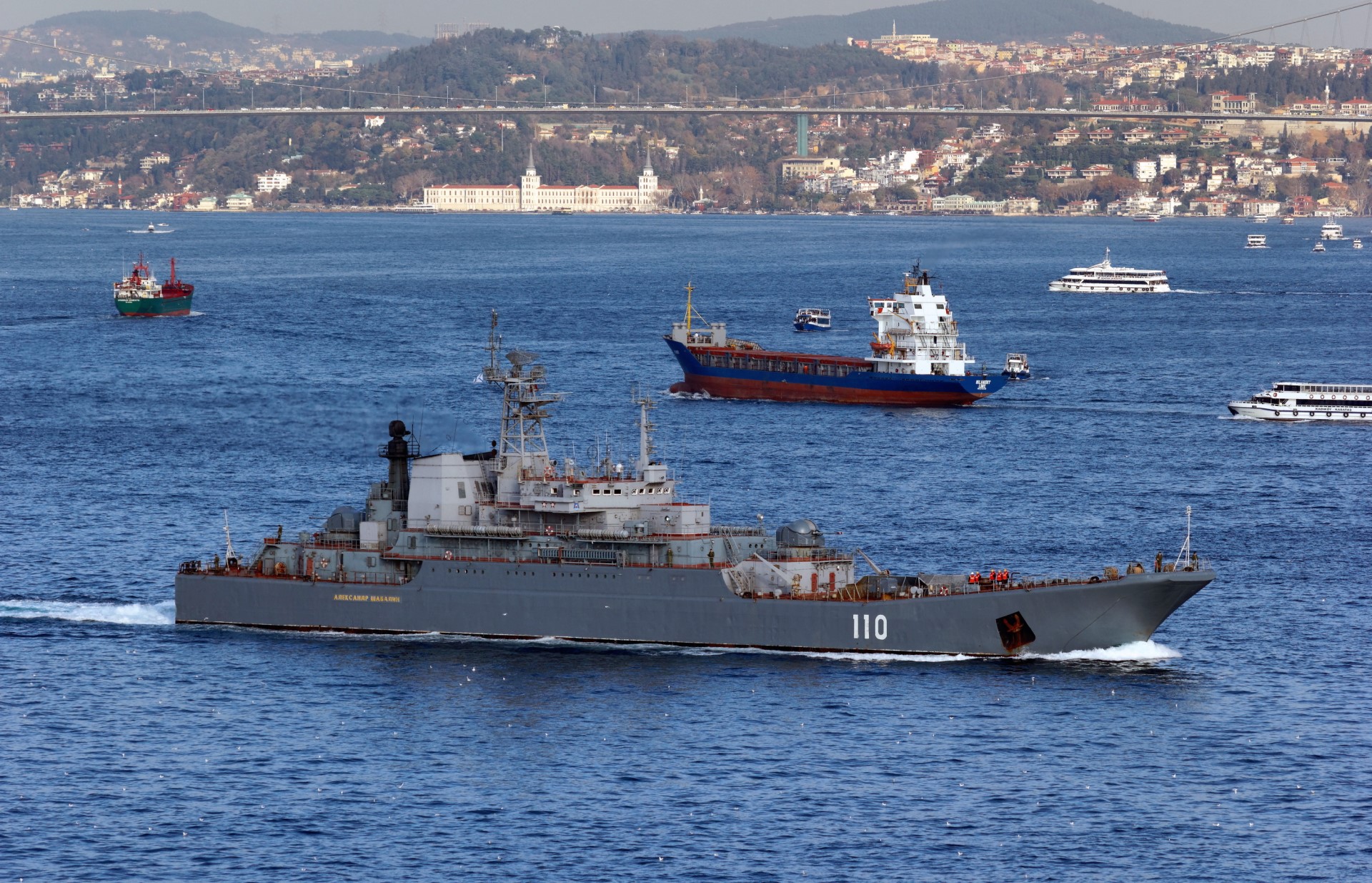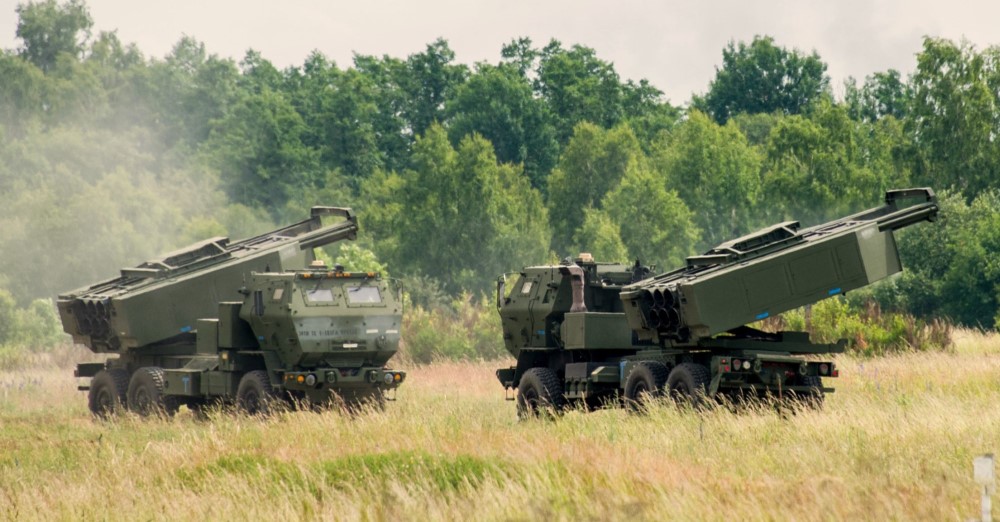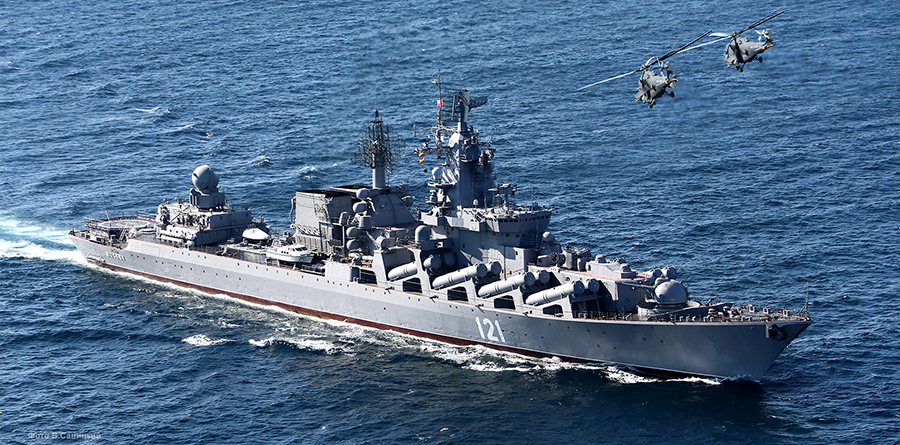On October 7, in the presence of Ukrainian President Volodymyr Zelenskyy, who was paying an official visit to the United Kingdom, Ukraine’s Defense Minister Andriy Taran and the UK’s Secretary of State for Defense Ben Wallace signed a memorandum on enhancing bilateral cooperation in the military and military-technical spheres (President.gov.ua, October 7; see EDM, October 29). An important aspect of this document was a funding pledge from the UK’s export credit agency in the amount of 1.25 billion pounds ($1.68 billion) for the construction of missile boats and new naval infrastructure in Ukraine.
Missile boats and naval bases are critically important to Ukraine’s capacity to deter an enemy as well as respond in a crisis in the Black Sea and the Sea of Azov. These capabilities are crucial to Ukraine in this closed maritime theater considering Russia’s overwhelming superiority when it comes to anti-ship missiles. At least eight UK-designed missile boats equipped with NSM anti-ship missiles are on the agenda between London and Kyiv; some number of them will be built at a British shipyard and the rest in Ukraine. The acquisition of these modern missile boats represents a great opportunity for Ukraine to strengthen its “mosquito fleet” navy (Defence-ua.com, December 7, 2020; see EDM, March 9, 2017).
This enhanced military/military-technical relationship with the UK will additionally have a positive impact on the health and potential of Ukraine’s shipyards. “We hope this will become a driver for the restoration of the shipbuilding industry in Ukraine and will bring modern technologies to our economy,” Minister Taran added (UNIAN, October 8). Undoubtedly, access to the UK’s advanced shipbuilding technologies, the possibility of Ukrainian industrial personnel learning from the know-how of British engineers, as well the opportunity to modernize the shipyard facilities in Mykolayiv all look attractive to Kyiv as it seeks to renovate Ukraine’s indigenous shipbuilding industry, which fell into a deep slump following the collapse of the Soviet Union (Interfax, October 26).
It should be noted that earlier, on August 19, the UK’s State Secretary Wallace announced, in Kyiv, that his country would lead a multinational Maritime Training Initiative for the Ukrainian Navy. Moreover, London promised to send Royal Navy ships to the region in order to boost Ukraine’s ability to combat threats in the Black Sea (Eurointegration.com.ua, August 19). A month after this visit, more than 450 British paratroopers, together with their Ukrainian counterparts, practiced an airdrop near Mykolayiv, the important port-industrial center in southern Ukraine. The drop was the largest exercise of this type carried out by the UK in more than 20 years. This show of force notably occurred as Russia was stepping up its large-scale strategic-operational military exercise Kavkaz 2020 near Ukraine’s boarders (UNIAN, September 19). In their joint operation in Ukraine, the UK troops effectively covered their hosts’ backs. So the symbolic advantage of such military collaboration between a NATO state and non-NATO partner was clearly on display.

It is instructive to view the joint UK-Ukrainian paratrooper operation near Mykolayiv as well as the broader defense partnership against the background of the lessons learned from the recent Karabakh war in the South Caucasus. Defense experts from around the world continue to study how and why Azerbaijan proved so successful in forcibly retaking Karabakh and surrounding territories from Armenia during the September 27–November 9 conflict. But many conclude that the key to Azerbaijan’s battlefield victories was the political-military support received from its regional “big brother”—Türkiye. Ankara stood steadfastly behind Baku tactically, operationally and strategically; it provided its ally with technologies, tactics and strategic advice (Radio Svoboda, November 18). The military alliance between two Turkic neighbors visibly paid off as Azerbaijani forces continually broke entrenched Armenian defenses and progressively retook ever larger slices of occupied Karabakh (see EDM, October 15).
Ukraine has also been looking closely at the lessons to be learned from the autumn 2020 war in the South Caucasus (see EDM, November 9). But if it is to emulate Azerbaijan’s successes, Ukraine will arguably need its own patron of sorts. Kyiv’s developing security relationship with London may be a seed for such a budding relationship down the line. Missile boat and naval infrastructure construction, the UK-led ORBITAL military training mission in Ukraine, Royal Navy warship visits to the Black Sea, and joint drills with the Ukrainian fleet are all important steps in that direction. And thanks to Ukraine’s status as a NATO Enhanced Opportunities Partner (acquired earlier this year), these can now be augmented with further cooperative projects, including joint operational planning, staff personnel training at the operational and strategic levels, as well as deep cooperation between defense industries (Armyinform.com.ua, June 16). A tightening working partnership between Ukrainian and British troops can contribute to changing Ukraine’s military mindset in a more pro-NATO direction. And close UK-Ukrainian military ties of brotherhood may quicken the pace of pulling Ukraine’s Armed Forces up to North Atlantic Alliance standards—particularly since NATO membership remains a distant prospect right now (Ukrinform.ua, December 11).
The United States has also for years actively supported and boosted Ukraine’s deterrence measures. This US backing has been strategically vital to Kyiv as it faces Moscow’s enormous military buildup and activity in the Black and Azov seas (Interfax, September 5; Ukrmilitary.com, June 17; Mil.in.ua, January 30). At the same time, however, Ukraine needs the UK as a powerful partner and possible patron at the regional level. According to Foreign Minister Dmytro Kuleba, the Ukrainian side wants closer cooperation with the UK military and is considering the possibility of hosting British paratroopers in the Mykolayiv region over the long term.
The current momentum of this bilateral defense partnership looks strategically advantageous for Ukraine—as well as for the security of the entire Black Sea region. It is in both countries’ interests to maintain this positive dynamic.
Read More:
- Ukraine’s geopolitical successes become Russian defeats
- Kremlin lashes out at Ukraine’s construction with Western help of new bases on Black Sea
- Russian disinformation shadows Ukrainian-British-US Joint Endeavor 2020 exercise
- “Black Sea mosquito fleet”: how the UK will help Ukraine regain its naval footing
- Ukraine signs Memorandum to modernize its Navy, new partnership and trade agreement with the UK
- Ukraine becomes a NATO Enhanced Opportunities Partner
- New Ukrainian naval base ‘East’: A countermeasure against Russia’s hybrid strategies in the Sea of Azov?








